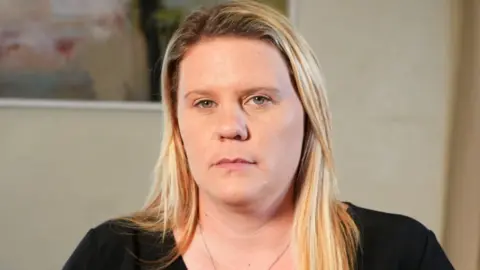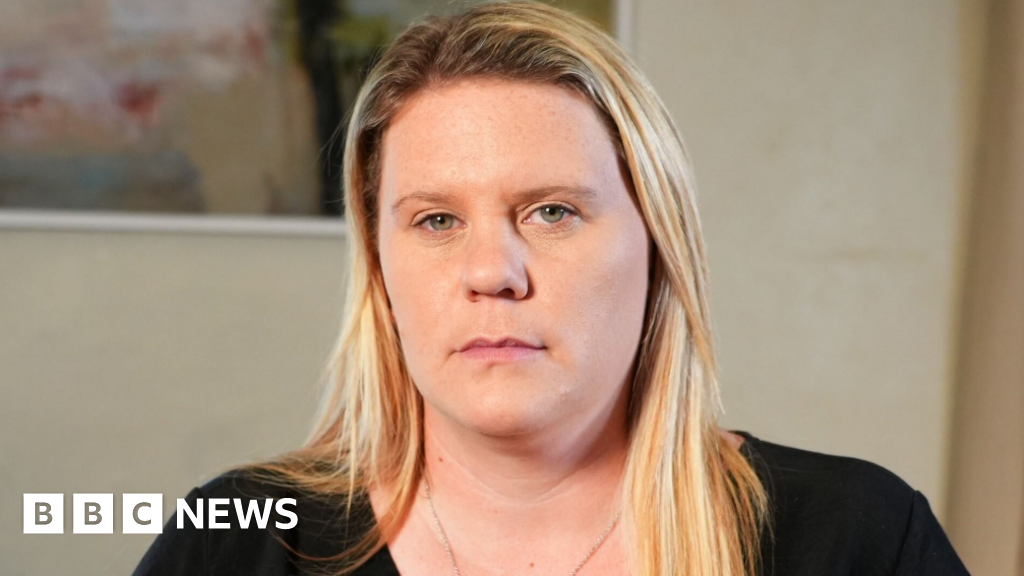Bu içerik, gençler arasındaki ilişkilerdeki şiddet ve kontrol konularını ele alan bir anket sonuçlarını ve bir annenin yaşadığı trajik olayı içeriyor. Micala Trussler, kızı Holly Newton’ın eski erkek arkadaşı tarafından öldürülmesinin ardından gençler arasındaki ilişkilerdeki şiddet ve kontrol sorununa dikkat çekiyor. Anket sonuçları, gençler arasındaki şiddet ve kontrol davranışlarının ne kadar yaygın olduğunu gösteriyor. Bu içerik, gençler arasındaki sağlıklı ilişkilerin önemine ve eğitimin bu konuda nasıl bir öneme sahip olduğuna odaklanmaktadır. YEF’nin Jon Yates’in açıklamaları ve hükümetin bu konudaki taahhütleri de içeriğin bir parçasıdır. Eğer bu konular sizi etkiliyorsa, BBC Action Line aracılığıyla bilgi ve destek alabilirsiniz.
[ad 1]
Kaynak: www.bbc.com

 BBC
BBCThe mother of a teenager killed by her ex-boyfriend fears others are likely to die if more is not done to tackle abuse and violence in young people’s relationships.
Holly Newton’s mother Micala Trussler voiced her concerns in response to a new survey suggesting 49% of teenagers in a relationship in the last year have experienced violent or controlling behaviour from their partner.
“My biggest fear is if children can’t access the support they need that they’re then going to end up in the same position as Holly and potentially be murdered,” she warned.
Jess Phillips, minister for safeguarding and violence against women and girls, described the results of the Youth Endowment Fund (YEF) survey as “heartbreaking and deeply concerning”.

 FAMILY HANDOUT
FAMILY HANDOUTThe findings of the YEF survey, shared exclusively with the BBC, shed light on how widespread coercive control and violence is in young people’s relationships.
The charity, which was given £200m by the Home Office to fund and evaluate anti-violence projects, asked more than 10,000 children aged 13-17 in England and Wales about their experiences.
It found 27% of respondents had been in a romantic relationship during the past year. Of those, almost half said they had been subject to controlling behaviours, such as having their partner check who they had been talking to on their phone.
Almost one in three said they had experienced some form of physical or sexual violence, while a fifth reported being pressured or forced into sexual activities to which they did not consent.
YEF chief executive Jonathan Yates said the survey had revealed “a shocking and pretty depressing set of findings”.
Although the survey does not draw any conclusions as to why teenagers are experiencing violent and controlling behaviour, Mr Yates had some suggestions about what could be contributing to the figures.
“Obviously we should be worried about is what’s going on online for a lot of our children,” he said.
“A third of all teenage children said that they’ve seen violence against women and girls being promoted online.”

 YEF
YEFTo help counter such content, Mr Yates said the first step was for the government to be “really serious about providing proper high-quality content in schools about spotting the signs of violence in relationships”.
At 58%, teens aged 13-15 were more likely to report violent or controlling experiences in their relationships than older teens. For those aged 16-17, the figure was 42%.
In contrast to domestic abuse in adults, the survey found boys in relationships are more likely to say they experience violent or controlling behaviours (57%) compared to girls (41%).
“What we’re calling for today is really high quality lessons and sessions from trained teachers or youth workers on how to stay safe in relationships,” said Mr Yates.
While schools do teach lessons on healthy relationships, the survey suggests topics such as consent may not be reaching those who most need it.
Martha, 18, from near Manchester, is on the YEF’s Youth Advisory Board. She said other pupils would skip sex and relationships education more than other lessons, due to a lack of consequences.
She added there was still a lot of stigma around talking about less healthy relationships.
“We’re told what an unhealthy relationship is like, but at no point did they tell us what a good one is,” she said.
Fellow advisory board member Hanzala Minhas, 19, from Bradford, is currently studying in Cornwall.
He said: “You don’t want young adults going into the future where they feel like these kinds of behaviours are the norm, because they’re not and I feel like it’s going to affect society as a whole because people will feel like they can’t get into healthy relationships.”
‘Education is fundamental’
According to the survey, 76% of students received some form of education on dating and relationships in the past year.
The topic most commonly reported as having been taught was sexual consent at 55%. The second highest was harassment, at 43%.
Additionally, only 40% said they had received lessons on how to be in healthy and respectful romantic relationships.
Children who admit to perpetrating sexual violence were even less likely to say they had received lessons on consent and harassment than the average – only 39% and 31% respectively.
Responding to YEF’s findings, Phillips said the government was committed to using “every tool at our disposal” to halve violence against women and girls in a decade.
She said: “Prevention and education are absolutely fundamental to our approach and we’re considering a range of actions to address teenage relationship abuse, including supporting our education system to teach children about respectful and healthy relationships and consent.”
- If you’ve been affected by any of the issues raised in this story, you can access information and support via BBC Action Line.





Yorumlar kapalı.